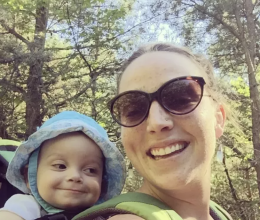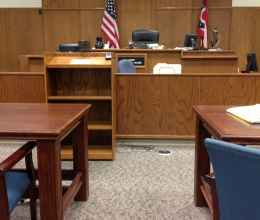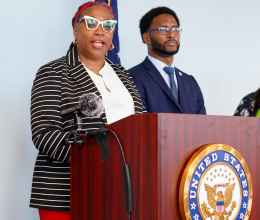The American Civil Liberties Union of Massachusetts and the national ACLU, together with the law firm WilmerHale, today filed a public-records lawsuit against the Boston Police Department (BPD) for information about street-level encounters between BPD officers and civilians since 2010. These records relate to important issues about race and policing. The ACLU requested the records 11 months ago in September 2014, and the BPD has not asserted any legal basis for withholding them.
The ACLU of Massachusetts submitted the September 2014 records request amid growing nationwide concern about racially discriminatory police practices. Since then, the requested information has become even more vital because academic researchers have finalized a report--written independently of the ACLU and released by the BPD over the July 4 weekend--finding that the BPD engaged in "racially disparate treatment" against people and communities of color from 2007 to 2010.
"These calculations predict thousands of extra police encounters per year due solely to race--specifically, the percentage of Black and Latino residents in a Boston neighborhood--rather than crime or other factors," said Matthew Segal, legal director for the ACLU of Massachusetts. "The people of Boston deserve to know, and the law says that they are entitled to know, what is happening between civilians and Boston Police Department officers on the streets of Boston. It is not good enough to disclose this information long after it is requested, when the time for people to vindicate their rights in court might have run out."
"In light of the nationwide conversation now taking place on race and policing, and given that a researcher selected by the Boston Police Department has found that race influenced policing in Boston for years, it is untenable for the BPD's data about race and policing to remain hidden from public view for 11 months after receiving a public records request for that data," said WilmerHale partner Kevin Prussia.
"The BPD can resolve this issue by turning over the documents," said Segal.
"As long as police withhold this information, people whose constitutional rights are violated might have no way of pursuing a remedy, and public officials who are considering policy reform will be working in the dark," said Carl Williams, staff attorney with the ACLU of Massachusetts. "Just yesterday, the Boston City Council held a hearing on whether police should wear body cameras to help address the problem of racially biased policing. But that discussion took place with no data from the past five years."
In a national context, Boston has trailed comparable cities. "The Boston Police Department has been presented with significant evidence that Blacks and Latinos have been subject to racially disparate treatment in police encounters, but has so far not taken one critical, obvious step to address the problem--disclosing the data on police encounters," said Nusrat Choudhury, staff attorney with the national ACLU's Racial Justice Project. "While New York and Philadelphia have created systems to continually disclose police encounter data in response to similar evidence, Boston police have only offered promises."
This situation also shows the need to fix Massachusetts' public records law. It has now been 335 days since the ACLU requested the records. Current law requires agencies like the police to turn over public information like this within 10 days, but it lacks any real incentive for them to comply with that requirement. Often, the only way to enforce the law is to bring a lawsuit, at the expense of the person requesting the documents. The outcome of today's lawsuit, ACLU of Massachusetts v. Evans, could affect other public records cases throughout Massachusetts.
Harvard law professor Ronald S. Sullivan Jr., who represents the relatives of Usaama Rahim in connection with Rahim's death during a street encounter with the Boston Police Department, said, "Transparency is vitally important to the relationship between the community and the police, both on a day-to-day basis and when shootings or other incidents occur. Failing to comply in a timely way with public records requests is incompatible with the transparency that is needed in Boston."
See a copy of the complaint, ACLU of Massachusetts v. Evans
See a copy of the academic report on racially disparate treatment against Boston communities
See a copy of the ACLU of Massachusetts report "Black, Brown and Targeted"




